The Matilda Effect
Margaret Rossiter MS’67 is rewriting the history of women in science, one name at a time.
The story of Esther Lederberg PhD’50 is equal parts inspiring and maddening. A brilliant geneticist, Lederberg discovered a bacteriophage — a bacterial virus — that became a crucial model organism for generations of subsequent researchers. She collaborated frequently with her husband, also a geneticist, in labs at UW–Madison and Stanford, but in 1958, Lederberg’s husband was awarded a Nobel Prize while she watched from the audience. She was thanked only briefly in his speech.
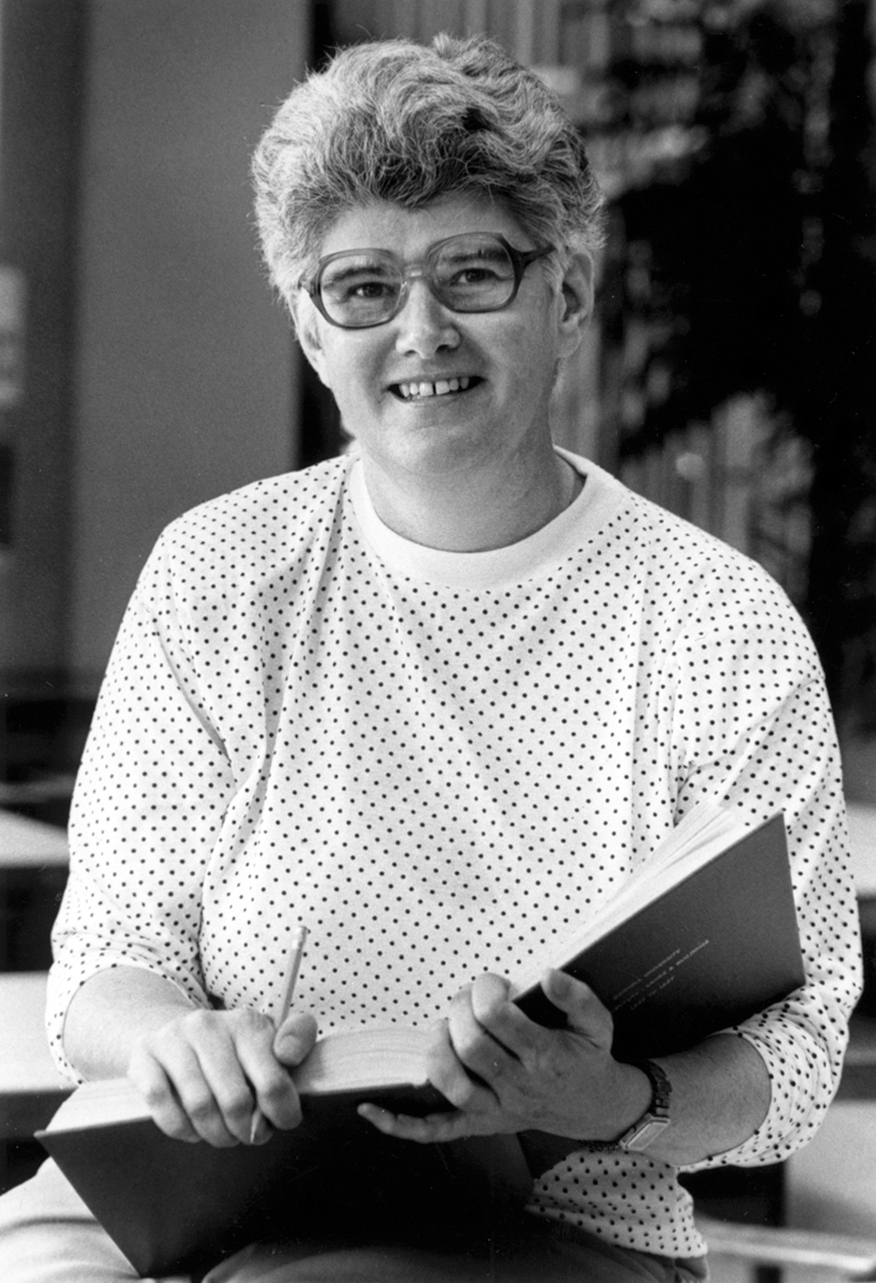
Rossiter, shown in 1989, has devoted her career to uncovering the contributions of women in science who have been written out of history. Office of Visual Services (UREL), Cornell University
There’s a name for what happened to Lederberg: the Matilda Effect, the historical and systemic bias against recognizing the contributions of women scientists and instead attributing their work to male colleagues. “This happens a lot. It needed a name, because giving it a name makes it stick with people,” says historian Margaret Rossiter MS’67, who coined the term in an article that has been cited hundreds of times and continues to influence scientists and historians today.
Rossiter’s own journey as a groundbreaking scholar took a short detour through Madison. A Massachusetts native, she earned her undergraduate degree at Radcliffe and moved to Wisconsin in 1966 for graduate studies. Science had always fascinated Rossiter, but she realized early that she was more interested in learning about scientists than working in a lab. The UW launched the country’s first stand-alone history of science department in 1941, and during its peak enrollment years in the late 1960s, one-sixth of all history of science doctorates in North America were awarded by the UW. (The program is now housed within the Department of History.)
Yet at the time, no women were on the department’s faculty, and few women were enrolled as graduate students. “We expect you to drop out because the last one dropped out,” she recalls a faculty member saying to her. The “last one” was another recent female graduate student. Rossiter spent most of the school year it took her to earn her master’s degree reading history of science books in Memorial Library and applying to other programs.
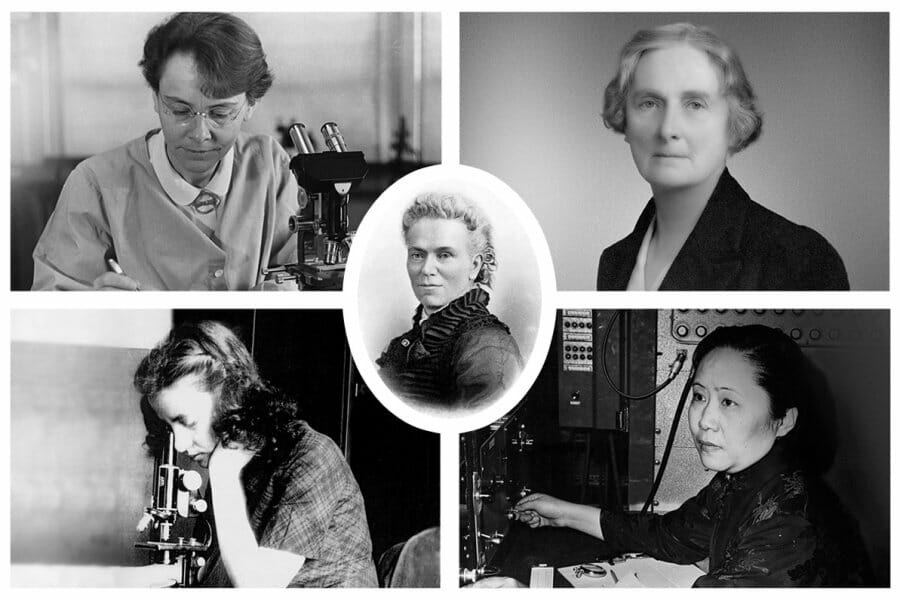
Clockwise from top left: cytogeneticist Barbara McClintock; geologist Florence Bascom 1882, 1884, MS1887; physicist Chien-Shiung Wu; and microbiologist Esther Lederberg. Center: suffragist Matilda Gage. Pictorial Press LTD./Alamy Stock Photo; Wisconsin Historical Society; Science History Images/Alamy Stock Photo; Esther M. Zimmer Lederberg Memorial Website; Science History Images/Alamy Stock Photo
She transferred to Yale, which was equally male dominated. Every Friday afternoon, graduate students and faculty gathered to drink beer and gossip, and Rossiter was one of very few women who attended. One week she asked the group if there had ever been any women scientists, and the faculty firmly answered no.
The Matilda Effect:
The historical and systemic bias against recognizing the contributions of women scientists and instead attributing their work to their male colleagues.
Rossiter wasn’t so sure, but she kept her academic focus on the history of agricultural chemistry and obtained her PhD in 1971. During a postdoc appointment at Harvard, she once again started asking questions about women scientists and discovered a reference text called American Men of Science that also contained the names of several women. In the early 1980s, she received a Guggenheim Fellowship and published Women Scientists in America: Struggles and Strategies to 1940, the first of three large volumes she wrote on the subject.
Over the course of four decades, Rossiter uncovered thousands of names of overlooked American women with advanced degrees, awards, or professional positions in a wide range of scientific disciplines. Yet for many years, she had to fight for a permanent position in academia. Eventually, after she won a MacArthur “genius” grant, Cornell offered her an endowed chair in a new department called Science and Technology Studies, and she is now a professor emerita.
The Matilda Effect continues to be one of Rossiter’s most enduring contributions. She named the phenomenon in honor of Matilda Gage, a suffragist who penned a radical essay in 1888 about women inventors. It reads, in part: “All progress in the arts, in science, in wisdom, is the result of successive steps, and it is impossible to foresee the consequences which may arise from the omission [of] an act by even the most obscure person.” •
Sandra Knisely Barnidge ’09, MA’13 is a freelance writer in Alabama.
Published in the Spring 2022 issue
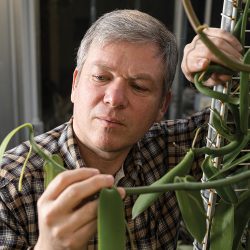
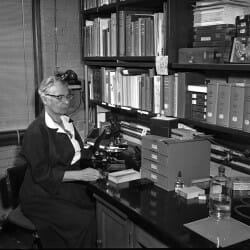
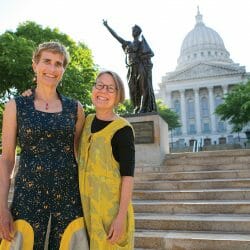
Comments
No comments posted yet.